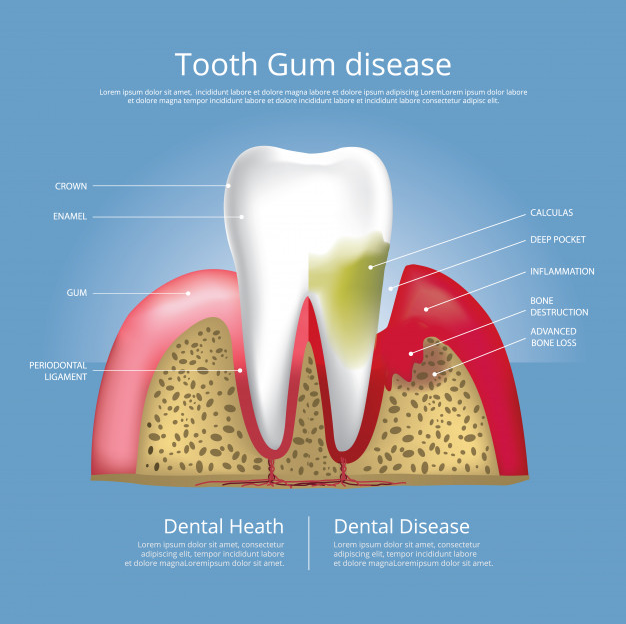
Emergency gum disease appointment
If you have noticed a change in your gums or experience any form of discomfort (swelling, redness, bleeding, foul mouth odour), book an emergency dental appointment with one of our dentists or specialists to address the issue. If left untreated, gum disease can severely impact your oral and overall health.

What causes gum diseases?
The most notorious and common causative agent for gum diseases is plaque. Plaque houses millions of bacteria which as implicated as the gum disease causative agent. Our regular oral hygiene methods help us eliminate this bacterial laden plaque that accumulates on the surface of our teeth and near the gumline. Nonetheless, when there’s improper oral hygiene methods, this plaque starts getting accumulated on our teeth’ surfaces and slowly hardens to form calculus. This becomes a niche for disease-causing bacteria, which metabolise the sugars to release toxic substances into our oral cavity. These bacterial by-products are responsible for generating an inflammatory response and thus leading to gum diseases.
Other than bacterial laden plaque, studies have shown and linked various risk factors and agents to the occurrence of gum diseases.

Risk factors for gum diseases
- Research and studies conclusively show a strong relation between smoking, consumption of tobacco and gum diseases.
- Type 1 and Type 2 diabetes.
- Certain medications like oral contraceptives, anticonvulsants, antidepressants, antianginals, etc.
- Chemotherapy.
- Cancers like Leukaemia.
- Crooked teeth.
- Faulty dentures.
- Broken and improper dental fillings.
- Hormonal changes that occur during puberty, menstruation, pregnancy, and menopause.
- A compromised immune condition such as with HIV-AIDS.
- Genetic predisposition towards gum diseases.
Types of Gum Diseases
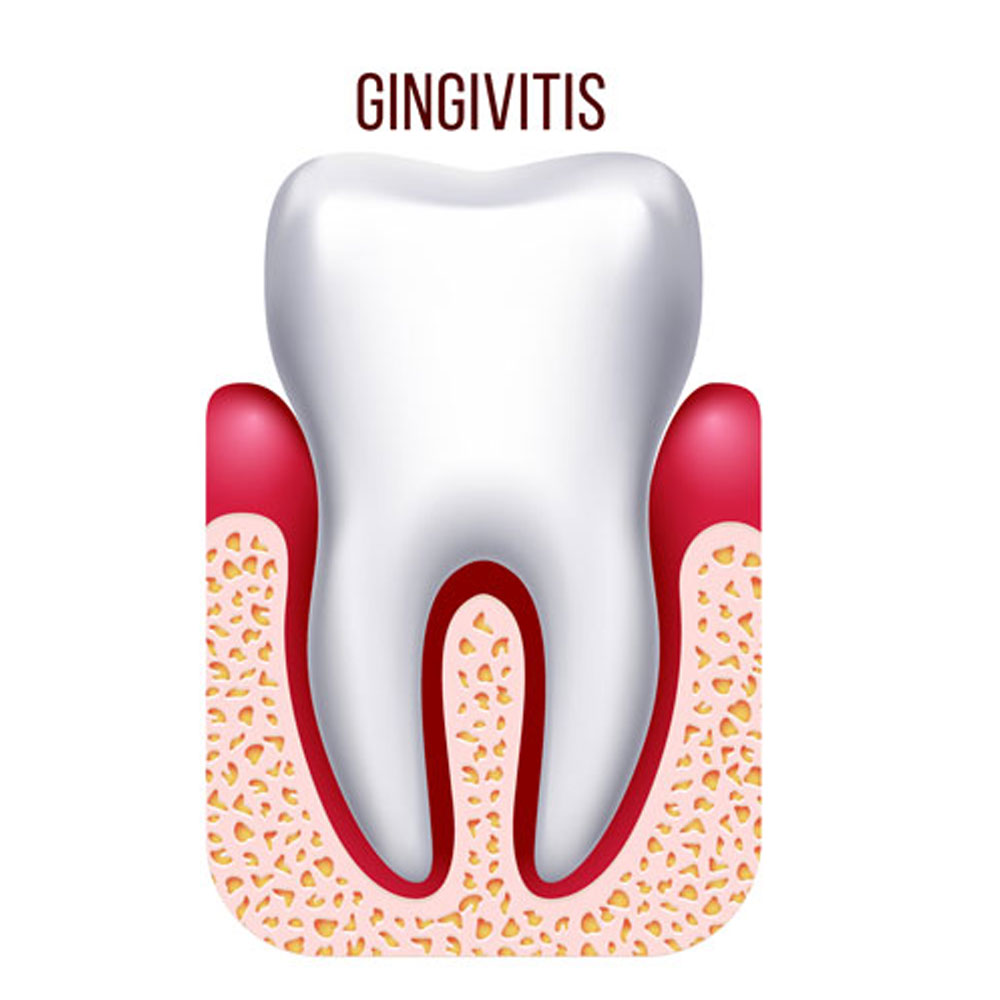
Gingivitis
Gingivitis is the initial, mildest, non-destructive form of gum disease that causes the gums to become swollen, red, tender and bleed easily. Gingivitis may or may not cause any discomfort and is easily treatable by our dentist in London and prevented with excellent oral care at home.
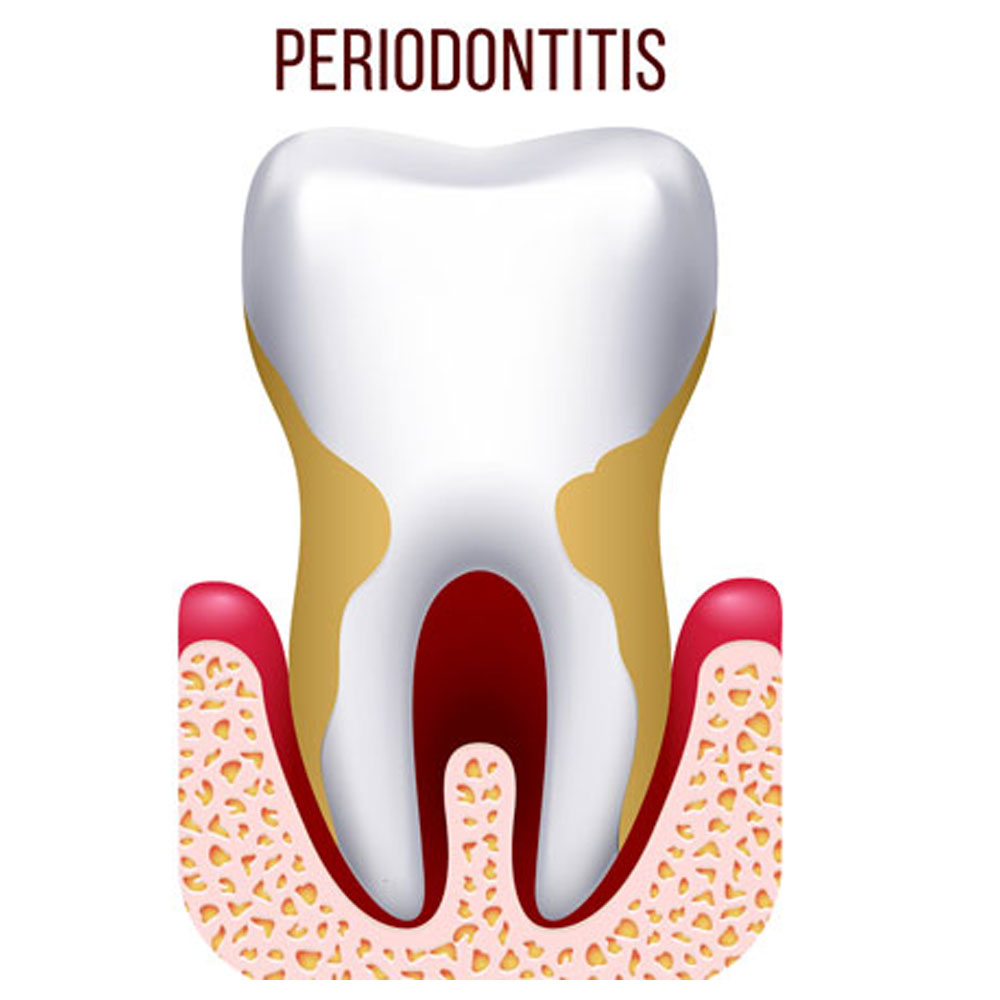
Periodontitis
If gingivitis is left untreated is slowly progress to an advanced lesion, periodontitis. With time, the plaque infiltrates and moves below the gum line, where the bacterial toxins start irritating the gums and generate a chronic inflammatory response. This leads to the destruction of the jawbone that supports our teeth. The gums begin to recede, the infection spreads, forming pockets, and with time, the teeth start to loosen due to lack of support and eventually fall. If periodontitis is ignored, the infection worsens, which may necessitate tooth removal, and you may end up losing all your teeth.
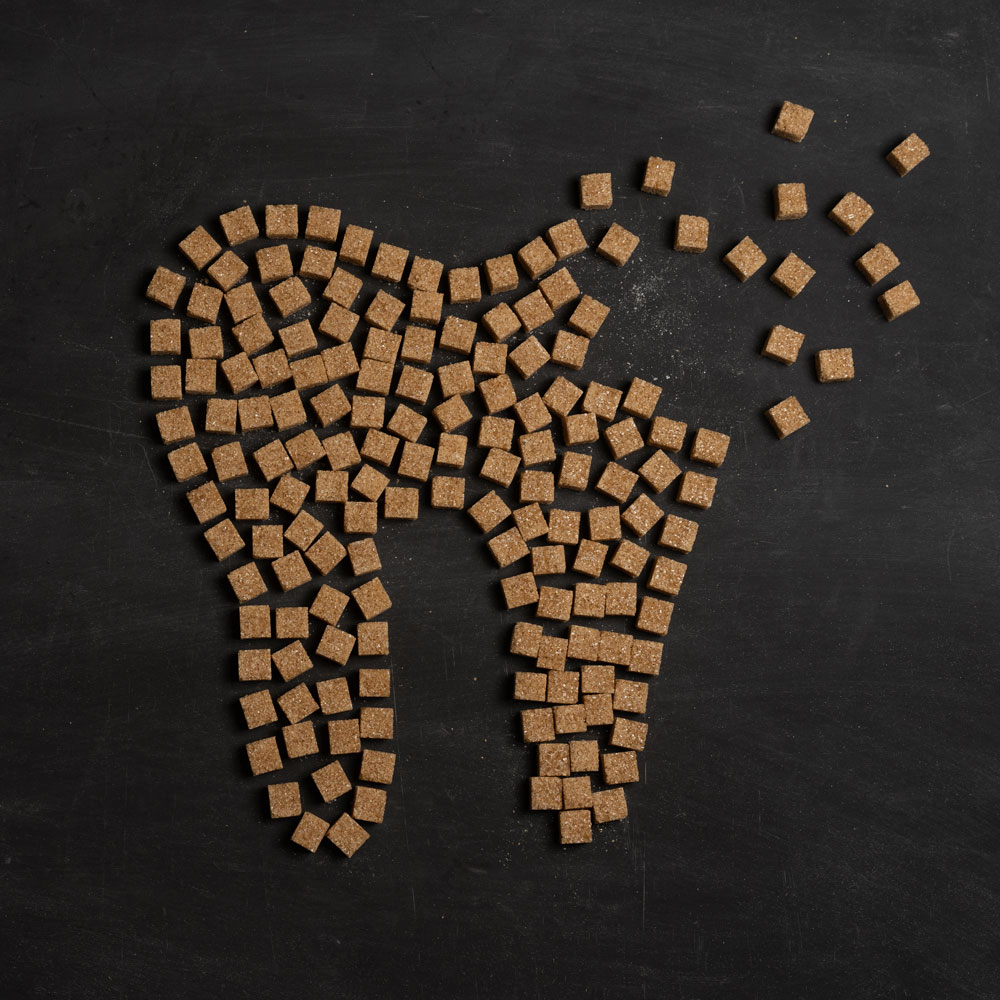
Necrotising periodontitis
Necrotising periodontitis is an infection of the gums where the gum tissue and underlying bone undergo complete necrosis and start sloughing off. This condition requires the immediate attention of a dentist, as it can worsen and lead to an entire sepsis stage. These lesions are widespread in people suffering from HIV-AIDS, malnutrition, and severely immunocompromised states.
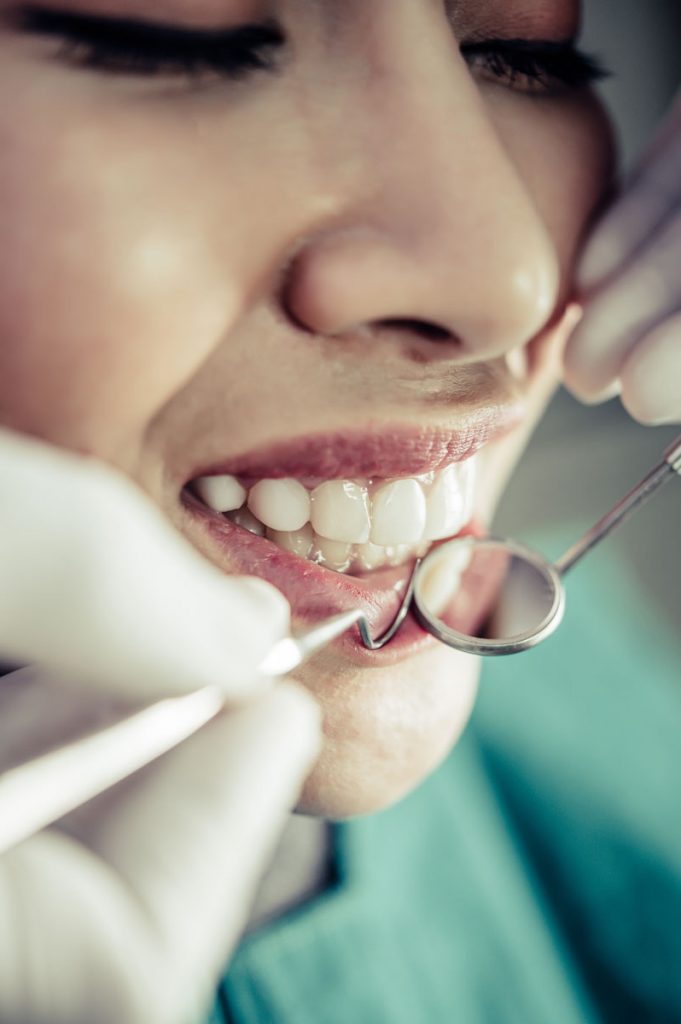
Diagnosing gum diseases
During your first dental appointment with us at our clinics in London, our dentist will do a complete dental exam. The extent of the inflammation is determined, and the gums are checked with the help of a measuring probe. The probing helps check for any inflammation and also measure the pockets in cases of periodontitis. Our specialist may also take some X-rays to analyse the condition of the bone and determine the severity of the disease.
Certain signs and symptoms also help in diagnosing gum diseases.
- Swollen, red, tender gums that bleed easily while brushing, flossing or biting down on a hard food substance. The swollen gums can even sometimes cover some structure of the tooth surface.
- Periodontitis can cause loose teeth and make the gums recede, it will lead to bleeding from the gums, and in severe cases of infection, there might be pus discharge from the gums. It can also lead to generalised pain in the jawbone.
- In necrotising periodontitis, the gum tissue may slough off because of necrosis, and it will start infecting and destroying the surrounding tissues and underlying bone.
Gum diseases require early intervention by a specialist to relieve the symptoms of the disease and prevent further complications.
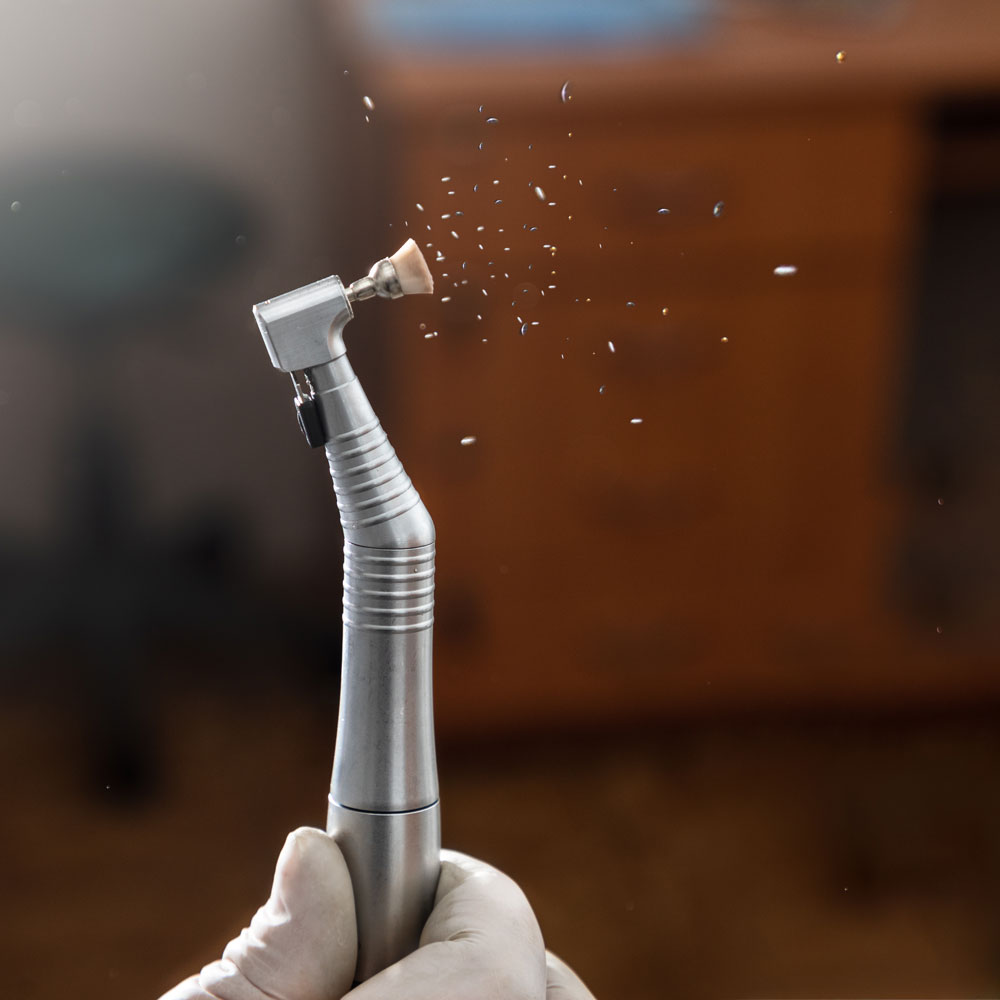
Treatment for gum diseases
Our dentists and specialist will first perform complete oral prophylaxis by doing thorough deep scaling and root planing. They will evaluate the progress and prescribe certain antibiotic pills and antibacterial mouthwash to clear off the infection.
In some cases, the loose, infected teeth may have to be removed and replaced later with dentures, bridges, or dental implants. The necrotic part will also have to be removed.
In some cases, surgical intervention like flap surgery and bone grafting may also be required to restore the gum height and health.

Complications of untreated gum diseases
- Recurrent gum abscesses
- Pain while eating, drinking and talking.
- Loose teeth.
- Loss of teeth.
- Generalised jaw pain and gum pain.
- Receding gums.
- Bleeding from gums.
- Infections of the cardiovascular system and respiratory system.
- Worsening of sugar level is people who have diabetes.
- Premature labour.
